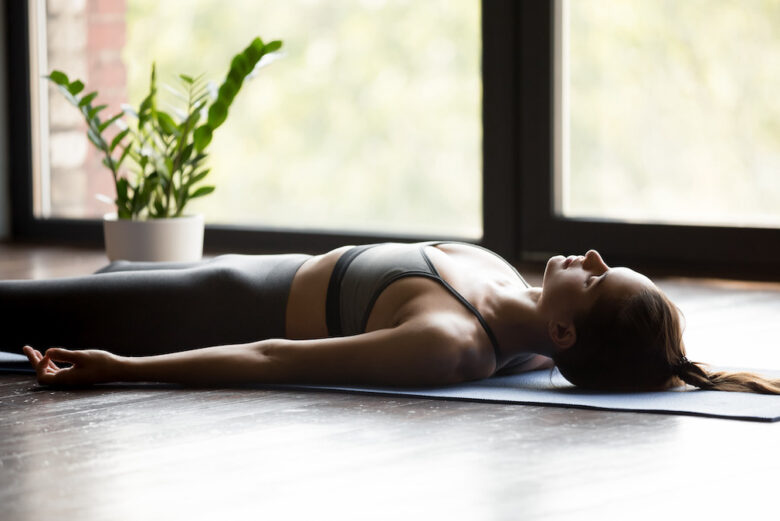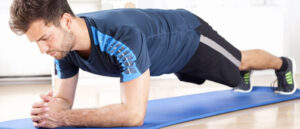Stress is a constant in today’s world, whether it stems from work, family, financial problems, or simply too much screen time. Most people look for easy ways to cope, but few realize how crucial an active lifestyle is for their mental health. An active lifestyle doesn’t just mean going to the gym; it also includes regular physical activity, such as walking, cycling, yoga, dancing, and even gardening. When you stay active, your body produces natural hormones that make you feel good, reduce anxiety, improve your mood, and help you maintain balance.
An active lifestyle can improve stress resilience in the long term, unlike short-term fixes like caffeine or scrolling through social media. Incorporating yoga into your daily routine can be a great way to calm your mind and improve your overall well-being. Let’s explore how an active lifestyle can truly help people reduce stress and live a better life.
How Exercise Helps Relieve Stress:
When you’re stressed, your body produces hormones like cortisol and adrenaline, which trigger a fight-or-flight response. This response is helpful in times of crisis, but chronic exposure to stress hormones can make you feel tired, irritable, and even exhausted. An active lifestyle can combat stress by lowering cortisol levels and promoting the production of endorphins (also known as “happiness hormones”). These natural substances can make you feel less anxious, happier, and more relaxed.
Furthermore, exercise improves blood circulation to the brain, which improves your mental state and makes it easier to concentrate. This not only helps you reduce stress in the moment but also helps your body cope better with stress in the long run. The more positive things you do, the stronger the connection between your mind and body becomes, making it easier to stay calm, even in difficult situations.
How an Active Lifestyle Benefits Your Mental Health:
Stress can lead to anxiety, depression, and sleep disturbances, which can worsen mental health and create a vicious cycle. An active lifestyle is an important way to break this cycle. Regular exercise stimulates the production of serotonin and dopamine in the brain, two chemicals that regulate mood and promote a sense of well-being. For people who suffer from overthinking or mental fatigue, even something as simple as a walk outdoors or yoga can clear their minds. Exercise also promotes self-discipline, allowing the mind to focus on positive rather than negative thoughts. Studies have also shown that people who stay active show fewer signs of depression and are less likely to develop stress-related illnesses. By channeling energy into physical activity, people can improve their mental health and emotional stability.
How Being Active Helps You Sleep Better:
One of the best ways an active lifestyle can relieve stress is by improving your sleep. Stress can lead to difficulty falling asleep, restless nights, or irregular sleep patterns. Lack of sleep can exacerbate stress and reinforce this vicious cycle. Daily physical activity helps regulate your body’s internal clock, also known as the circadian rhythm. It can shorten the time it takes to fall asleep and increase the duration of deep sleep, which is crucial for mental and emotional recovery. An active lifestyle, such as a morning jog, an evening walk, or yoga, can relieve stress and make it easier to rest before bed. Better sleep in the long run not only reduces stress but also makes you feel better, more energetic, and more productive throughout the day.
Building Stress Resilience with an Active Lifestyle:
The biggest benefit of an active lifestyle is that it not only helps people better manage stress but also makes them stronger. Resilience is the ability to recover from a struggle without feeling overwhelmed. An active lifestyle teaches your body and mind how to handle stress, thus strengthening your resilience. For example, when someone exercises intensely, they build muscle and become mentally stronger. Thinking about it this way, real-life problems seem less daunting. Furthermore, an active lifestyle can give you a sense of accomplishment, which increases your self-confidence and self-esteem. People who are physically fit and capable generally have more confidence in their ability to withstand emotional stress. This helps you develop a more balanced and positive outlook on life over time, making it easier to manage stress.
Conclusion:
One of the best and most natural ways to manage stress is an active lifestyle. It not only helps you relax temporarily but also protects you from worry, stress, and emotional fatigue in the long term. An active lifestyle can relieve stress in many ways, such as by reducing stress hormones, improving sleep, elevating mood, and increasing resilience. The positive news is that you don’t have to exercise intensely or follow a complex plan. Even small, regular efforts, like a daily walk or yoga session, can have significant effects. We can’t avoid stress, but we can choose how we deal with it. By being proactive, we can live a calmer, healthier, and more fulfilled life. In this ubiquitous world, being proactive can help you attain balance and inner peace.
FAQs:
1. How does exercise help relieve stress?
Exercise can lower cortisol levels, release endorphins, and make you feel better, helping you relax both physically and mentally.
2. What form of exercise is best for relieving stress?
Walking, yoga, cycling, swimming, and dancing are all excellent ways to relieve stress. The most important thing is to choose something enjoyable and pleasurable.
3. Can an active lifestyle alleviate sadness and anxiety?
Yes, an active lifestyle can increase serotonin and dopamine levels, which can help alleviate anxiety and depression and regulate your mood.
4. How often should I exercise to reduce stress?
At least 30 minutes of moderate exercise most days of the week is a beneficial way to reduce stress. The frequency of exercise is more important than the intensity.
5. Can an active lifestyle help you sleep better?
Of course. Regular exercise can regulate your sleep cycle, reduce insomnia, and help you sleep more deeply and soundly.




